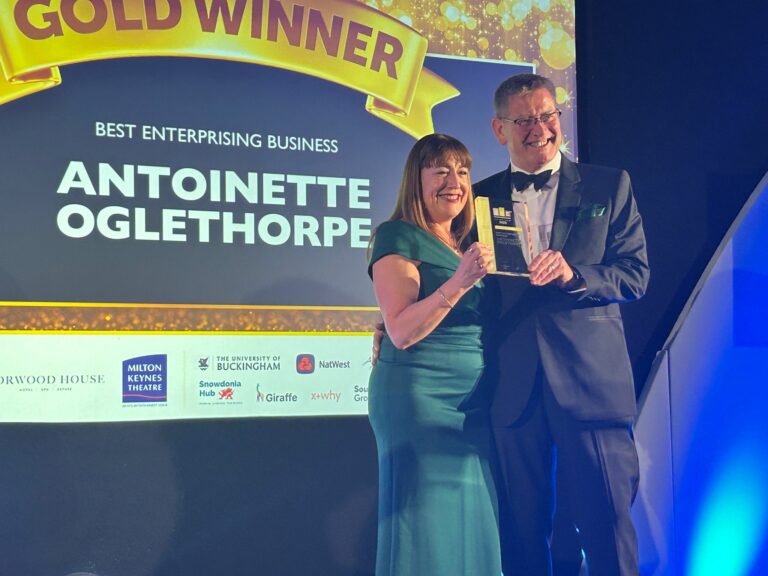We all want to stand out in our organisation and in our industry. Your professional reputation plays a big part in helping you to achieve that.
In my last blog post, I talked about the importance of professional brand and
reputation for career success. What can you do to develop them?
This blog post outlines four strategies you can use to proactively manage your
professional reputation. Those four strategies are:
- Personal contact
- Publishing content
- Public Speaking
- Publicity
Let’s look at each in turn:
1. Personal contact:
How you show up in meetings with others is clearly important. Here are some tips
on how to leverage personal contact to build your profile and professional reputation:
Build relationships with the right people
Connect with the leaders who are relevant to your field of interest and can help you grow professionally.
Ask them if you can get 15-30 minutes on their calendar to meet them and learn
more about their work. In these meetings, talk about your background, achievements and ambitions. Also, offer to help them with any of their projects.
Senior leaders are always working on new initiatives, so they’re often looking for
ambitious people who are eager to contribute. Just be sure to give your boss a
heads-up about these conversations, so he/she doesn’t feel blindsided.
Network both inside and outside your organisation
Too many professionals have many connections who are like them (working in the
same company or the same industry). That is great. But, when only a select group
knows about your talents and abilities, you narrow your field of influence. You have
fewer people who can speak about your contributions or provide opportunities.
Cultivate a broad network, so you widen your influence and options.
Network offline at key industry conferences and events
Networking is the main reason a lot of people attend conferences. Connecting with one key influencer within your industry can lead to massive exposure. When
attending conferences, make sure you have a well-thought-out game plan in place. Identify who you wish to meet in advance and try to pre-schedule times to meet, either in-between sessions or at evening events. A mention in a blog post, shout out on social media or a plug in an email newsletter of an industry influencer can do wonders for your Professional Reputation and Brand.
Network online through social media, groups and forums
You don’t just want followers on Twitter or connections on LinkedIn. You want
acquaintances who are engaged and informed about your professional journey. Be
sure to engage on posts of other accounts with likes and comments. Ask questions that reflect you are an out-of-the-box thinker who pays attention to what is happening. Comment on stories that interest you.
There are also LinkedIn Groups, as well as forums everywhere you go. Add your two cents, help solve a problem, provide interesting research or data, these are all great ways to build engagement. Over time, people in your niche will start to recognise your account and your name, which is again, why consistency is so important. Be mindful that your actions should ultimately aim to contribute value to others. People will recognise and even revile baseless self-promotion. Before you post anything, ask yourself if you’re undermining the integrity of the group or its rules.
Another solid tactic offered is finding content that aligns with your communities
needs, share and discuss it. Think about your audience and what interests them and then provide content they would want to see. What you choose to share reflects you and your interests, while also helping you to maintain an active, authentic presence online.
2. Publishing Content
Publishing content is a good way to share your ideas and build a positive professional reputation at scale. In almost any organisation, there are ways that you can show your knowledge and help others. Tell stories, teach what you’ve learned or share your struggles. Give people something interesting, educational or human.
Personal/company blog
A blog is an excellent way to build your image because you can write on your chosen topics to establish your expertise. But a neglected blog does not create a good impression, so don’t start one unless you are committed to regularly updating it.
LinkedIn Pulse
Try writing some thought leadership pieces for LinkedIn’s Pulse publishing platform. Then engage with the people who comment. By turning comments into conversations, you establish yourself as an authority.
Guest posts/articles
Can you publish on someone else’s platform to reach a wider audience – the company intranet, business magazine, trade journal?
3. Public Speaking
Increasing your visibility doesn’t always need to involve writing. Put yourself forward as a speaker at events. Even better, hold your own events. Organising a talk, demonstration or workshop is an excellent way to get noticed, get known and spread your message.
The online version of presenting is video. Video content is arguably the best
medium for conveying your messaging around building your career. It’s also a great way to let your personality and passion shine. You can start a vlog on YouTube or deliver a webinar.
4. Publicity
If there are any radio or TV opportunities, take them and create them. The one
media everyone has access to is social media.
Establish and manage a presence on social networks
Create profiles that reflect your passions on social networking platforms. Maximising your LinkedIn profile to reflect your interests, skills and ambitions is essential. If you are active on Facebook and Twitter, make sure your profile and the information you share on those platforms are consistent with the overarching tone and message of your Professional Brand.
Professional headshots
If you want to be taken seriously, you need to use a professional headshot across all your social media profiles. It’s well worth investing in some professional
photographs.
Get your social media profiles in order
While this often seems like a no-brainer, you may be surprised by the things you find attached to your profile. You’ll want to ensure that you get your LinkedIn, Facebook, Instagram and Twitter pages in order. Plus any other social networks you’re using to promote your yourself or your content.
Delete unprofessional images and videos from your Facebook profile. Clean up distasteful comments on Instagram. And keep an updated and active LinkedIn profile. Be cautious about posts that showcase partying, [or the like]. It will only work against you. We are living in a very sensitive climate and online tone can easily be misinterpreted. Don’t forget that any posts you make on Twitter are visible for all to see and may appear when someone Googles your name.
Choose your associations wisely
Anything you like, post, comment, tweet, or pin, leaves a digital footprint and is a
reflection of your Professional Reputation and Brand. Don’t be fooled into thinking anything is private on the internet. Think very carefully about what you post to your profiles (i.e., no drunken photos or rants!) and be purposeful in your messaging. Be sure to activate security controls that stop friends from tagging you in photos and statuses without your approval.
Post content consistently
Your Professional Brand is essentially made up of the content you create and share, from your LinkedIn updates to articles and blog posts. You should share content regularly, but only when it aligns with your personality and company. Consistency is a must, as it helps ensure you’re top-of-mind for everybody in your niche. It helps create a cohesive Professional Reputation.
These four strategies all follow the same principle: be yourself, but better. By that I mean you should be comfortable and confident in your own skin, but you should also have a plan to grow and improve. The most important part of all this is simply telling a good story. It should be a story that will motivate people to pay attention to you, remember you, and ultimately want to work with you.
If you are thinking about your Professional Brand and how this can help you achieve your career success. Or if you are a manager or mentor looking to empower your employees to think about their career aspirations. Our Career Compass Workshop is perfect for individuals in organisations. It is a chance for people to plan their professional development and shape their future in the organisation.



